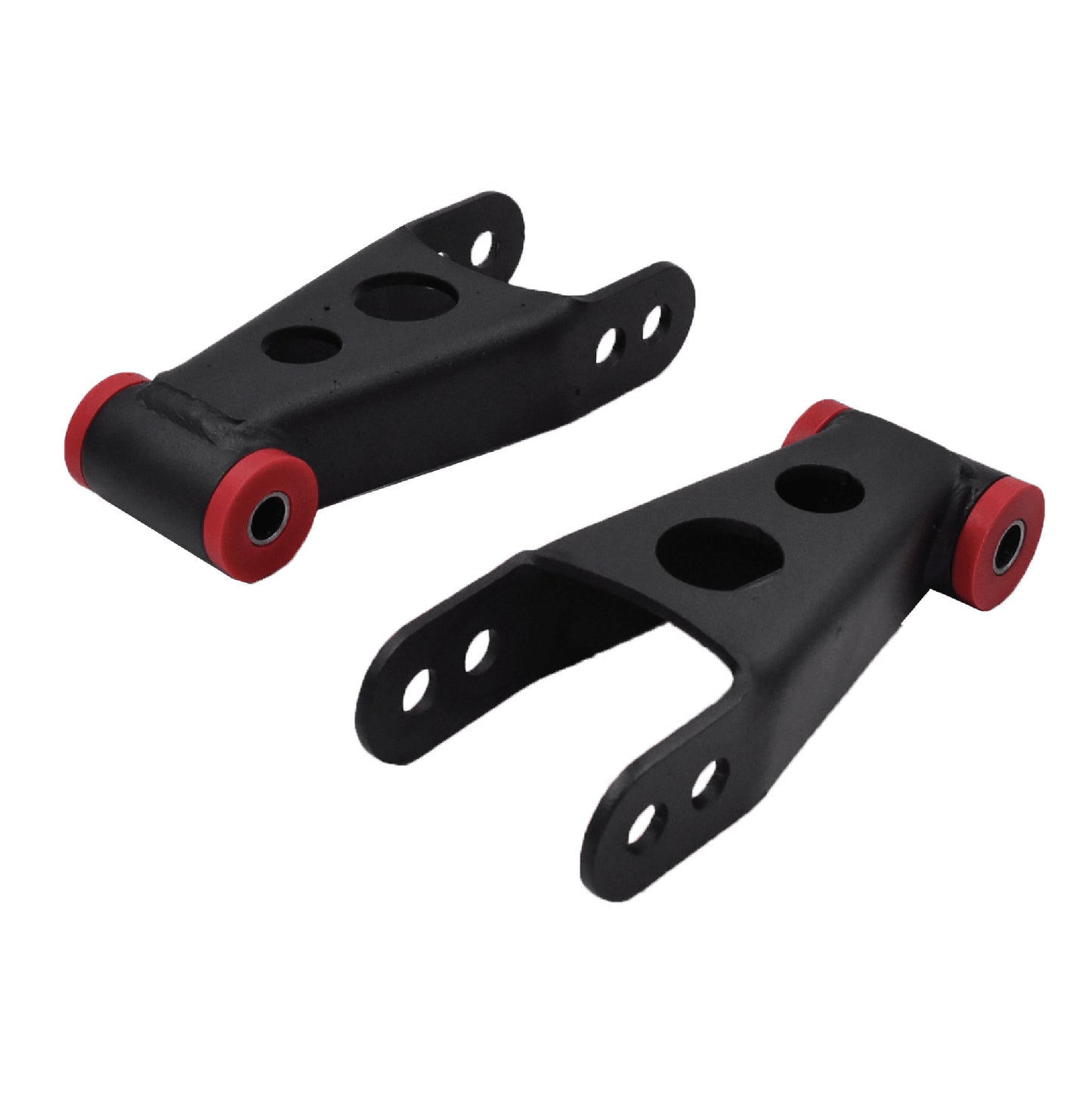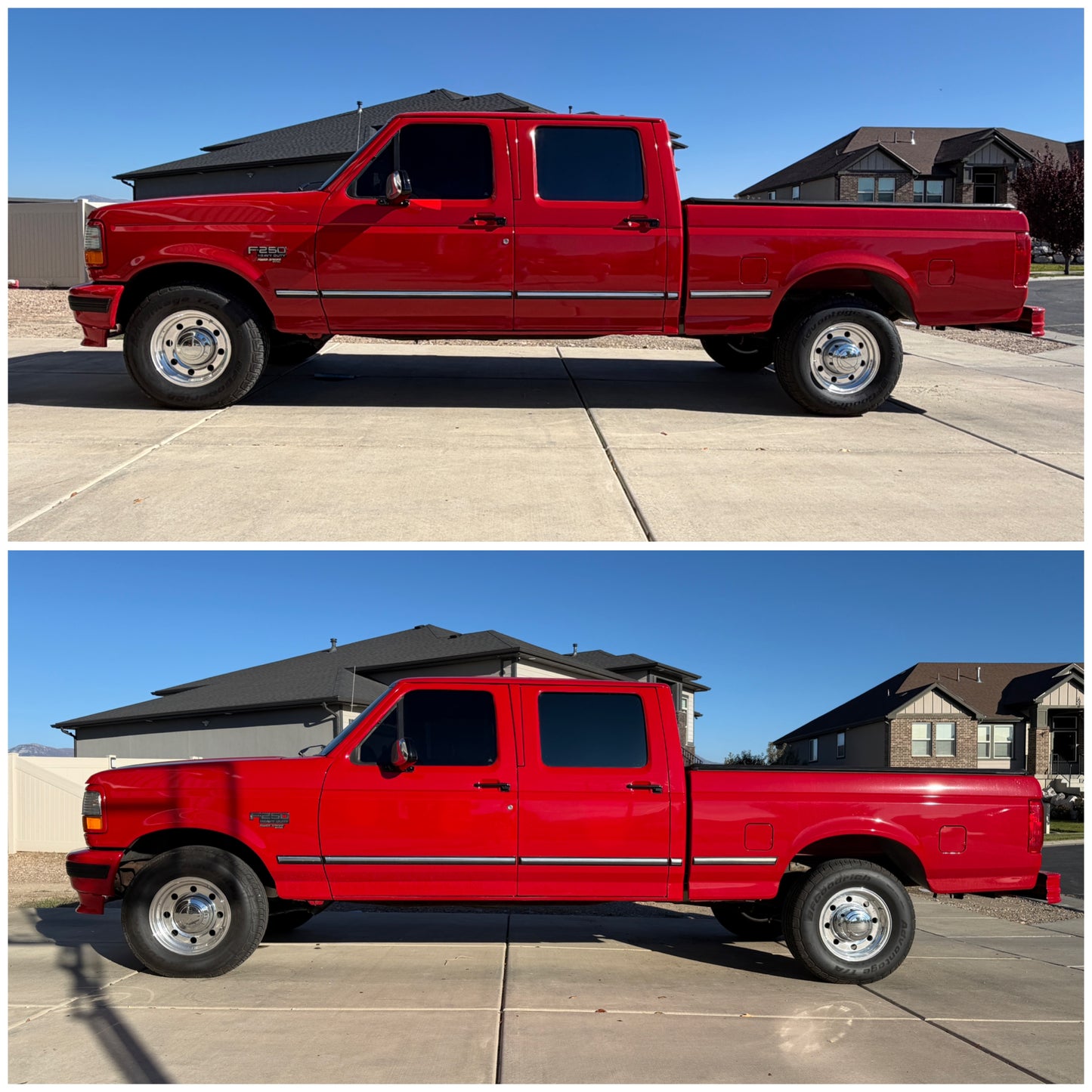Contact Us
Based on the measurements you provided, we couldn’t match any products. Please provide your email and phone number, and we will reach out to you during business hours.
SKU:SH1014-2
DJM Suspension F150 2 inch Rear Lowering Shackles - 1973-1996 Ford F-Series
DJM Suspension F150 2 inch Rear Lowering Shackles - 1973-1996 Ford F-Series
Pairs Well With
DJM Rear 2″ Leaf Spring Lowering Shackle Kit – 1973–1996 Ford F-100 / F-150
The DJM 2″ Rear Lowering Shackle Kit is one of the simplest and most proven ways to eliminate the factory “stink bug” stance on your classic Ford truck. Drop shackles have been a sport-truck staple for decades, and for good reason — they’re affordable, effective, and easy to install.
This kit delivers a true 2″ drop in the rear, giving your F-100 or F-150 a cleaner, more balanced stance without sacrificing ride quality or hauling capability.
🔥 Why Drop Shackles Still Work:
-
2″ Rear Drop – Perfect for leveling the factory rake
-
Simple, Proven Design – No cutting or welding required
-
Retains Factory Ride Quality – No harsh spring changes
-
Budget-Friendly Lowering Option – One of the most economical drops available
📦 What’s Included:
-
DJM rear lowering shackles
-
Required mounting hardware
🛠️ Fitment:
-
1973–1996 Ford F-100 / F-150
-
Rear leaf spring suspension
⚙️ Installation Notes:
-
Professional installation recommended
-
Proper vehicle support and torque procedures are critical
-
Re-torque hardware after initial break-in (10, 100, and 1,000 miles)
-
Test drive recommended after installation to get familiar with revised handling
If you’re looking for a clean rear drop without over-complicating things, the DJM 2″ Rear Lowering Shackle Kit is a tried-and-true solution that delivers instant results and timeless stance.









